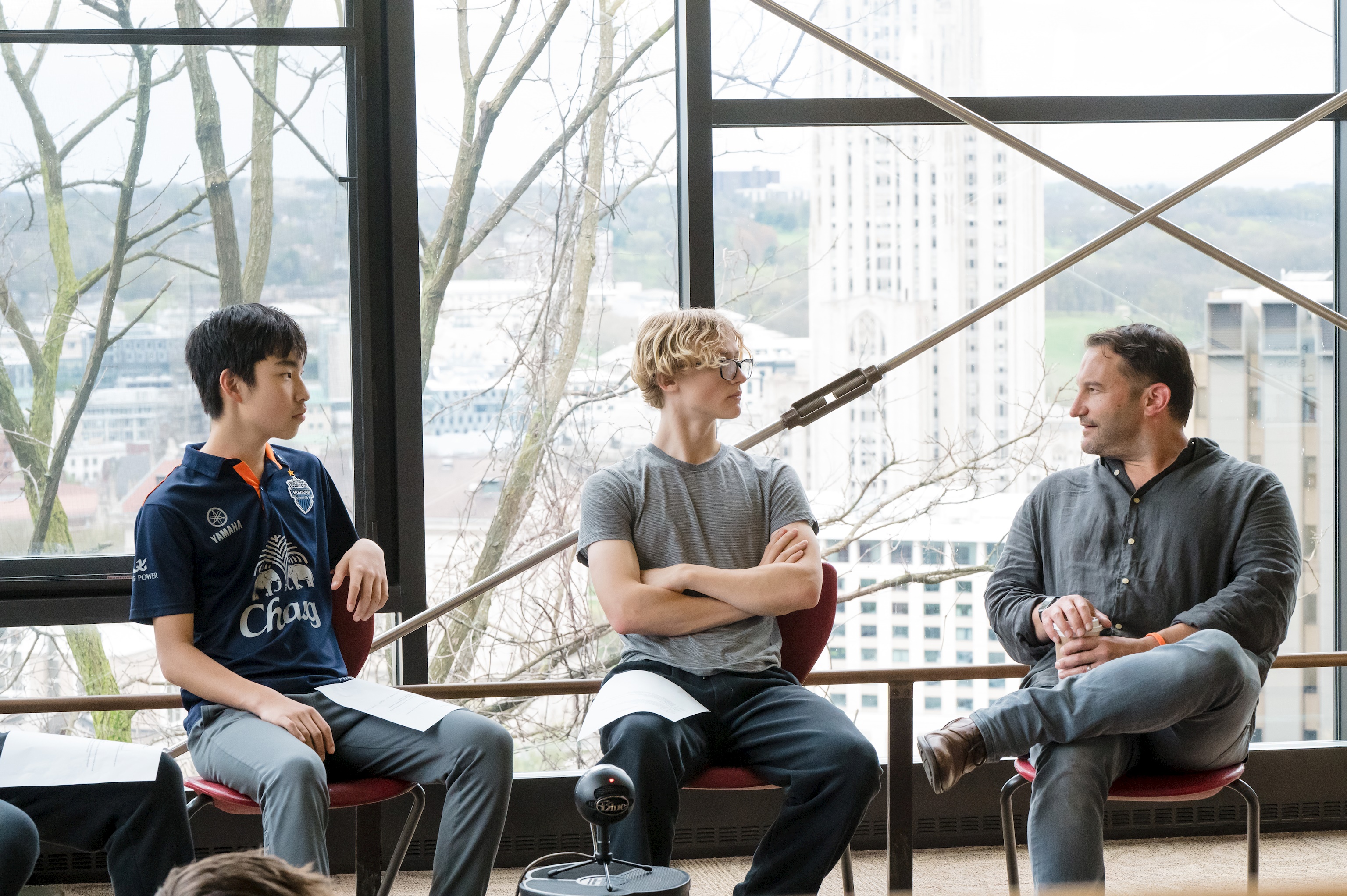Discover our
Home for Learning
- Contact
- 412-624-8020
- [email protected]
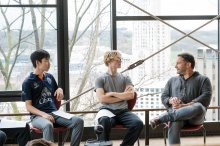
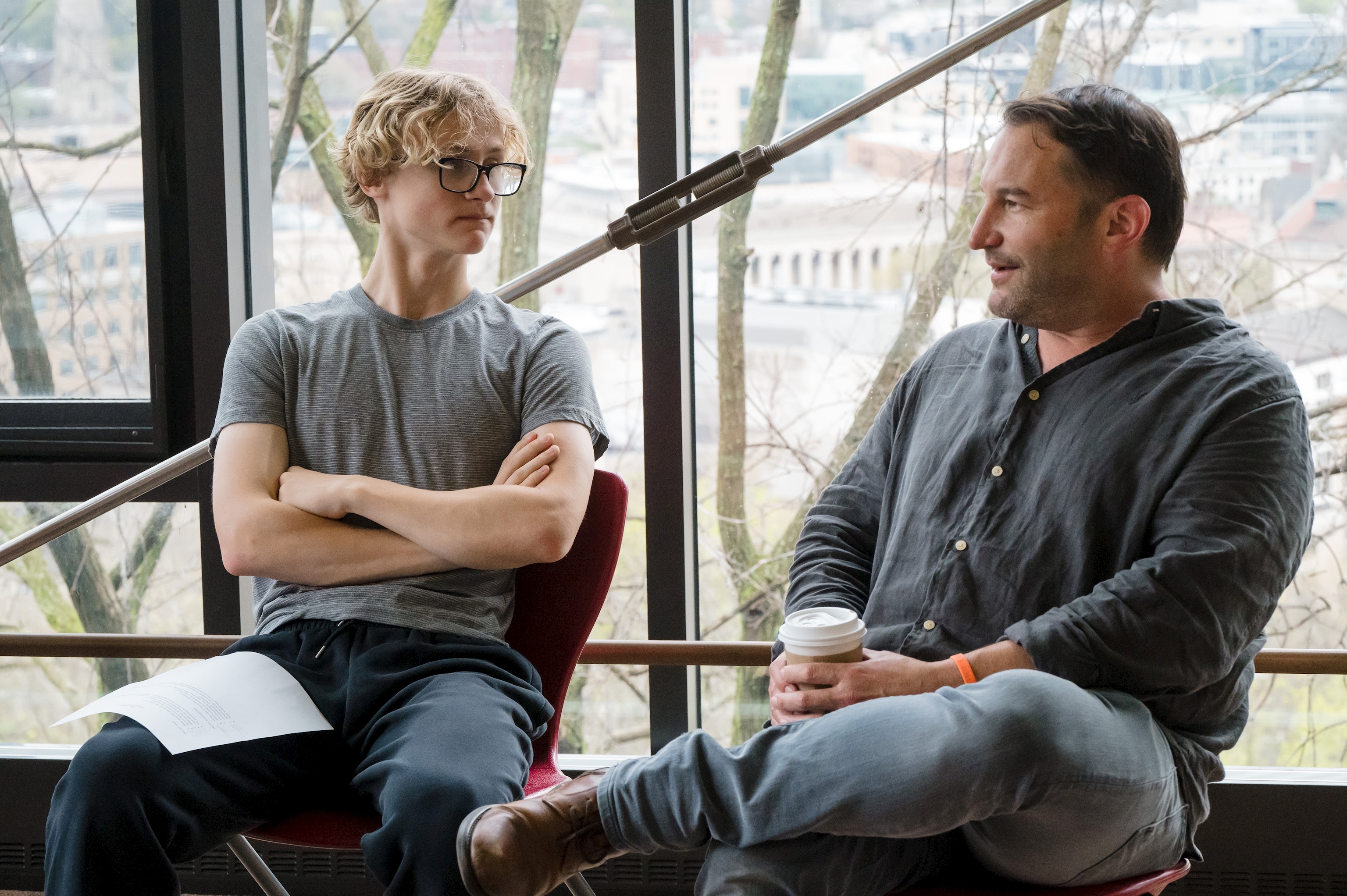
On Friday, April 12, Falk Laboratory School welcomed David Greene back to the school. A former host of National Public Radio’s (NPR) popular “Morning Edition” program, Greene attended Falk from Kindergarten until fifth grade, when his family left Pittsburgh.
From 2000 to 2008, Mr. Greene covered the White House for NPR, and served as the network’s Russian correspondent from 2010 to 2012. He was the host of “Morning Edition,” which is heard in more American homes than any other public-radio program, from 2012 until he retired in 2020. Since then he has remained busy, hosting and producing podcasts such as “Left, Right, and Center,” and “Ukraine Stories,” which showcased a different Ukrainian citizen every day during the first few months of the Russian assault.
During his visit to Falk, Mr. Greene took a tour of the building, including the 2010 addition, which was new to him. He then participated in a question and answer session with Falk Middle School students, presented below. (You can also listen to an audio recording of Mr. Greene's talk on Falk's SoundCloud page.)
“We’re always so delighted to welcome former Falk students back to the school, not because they demonstrate to current Falk students that they can go on to do amazing things but because of how they do these amazing things: by asking questions, by finding creative solutions, and by trying new things,” said director Dr. Jill Sarada in her introduction. “These are all Falk values, and these are all trademarks of David Greene’s work as a journalist, which is why we’re so thrilled to have him here with us today, speaking with students and taking their questions.”
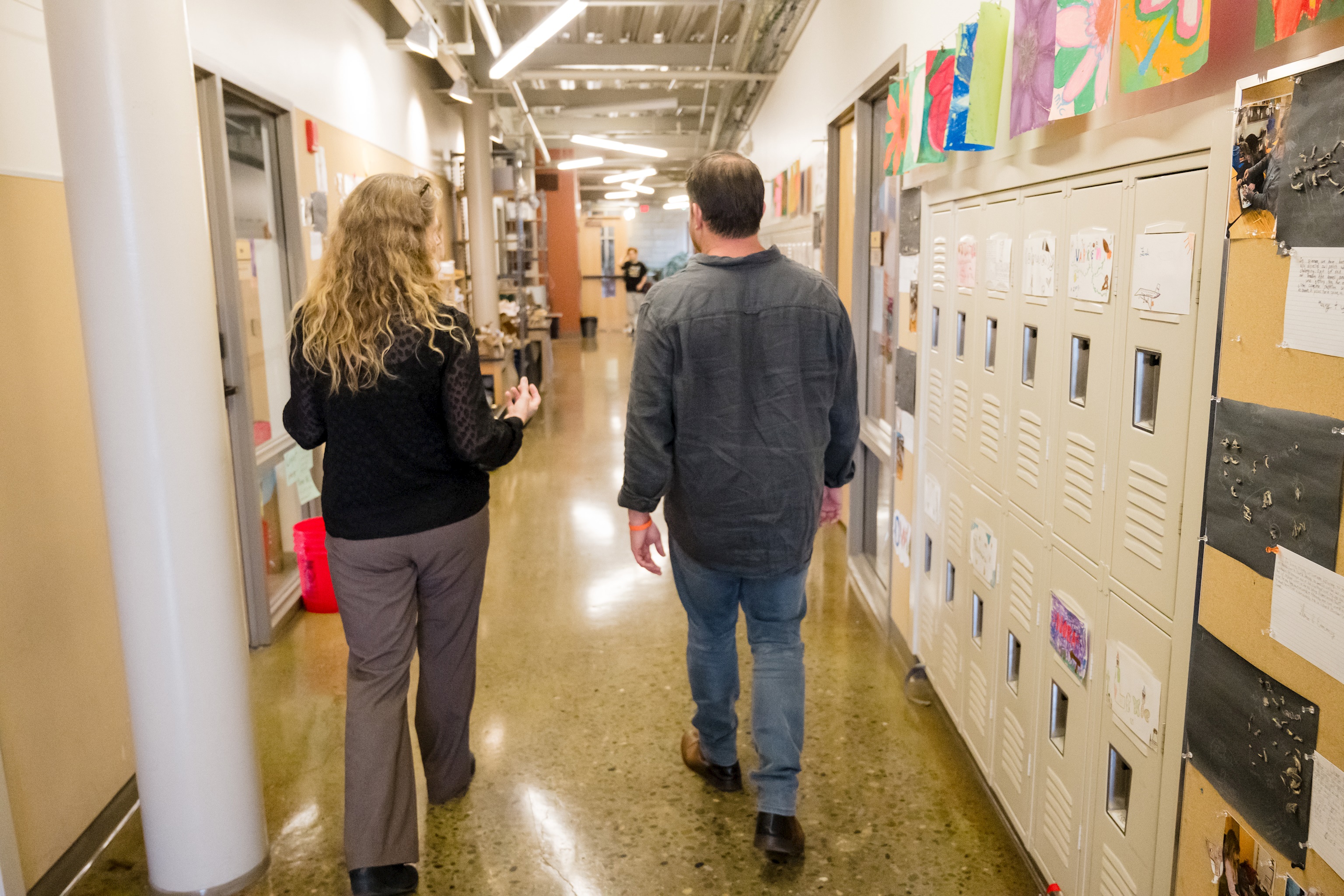
Dr. Sarada: On a podcast I heard something once that has stuck with me: “the antidote to judgement is curiosity.” And that is something I think about deeply. Can you speak to what that might mean in relation to the work that you do?
I love that phrase and it actually is very central in my work today. I don’t have to tell all of you this, I think we live in a world where there can be too much judgment when someone says something maybe about politics or something else. You might immediately have a judgement of that person. Like, “I can’t sit down and have dinner with this person,” or “I can’t sit with this family member because I disagree with them about this big thing.” In the world of politics today, I think this is so, so sad and problematic.
I was actually in Lancaster, Pennsylvania, where I went to high school, a few days ago. And I was having some dinner sitting at a bar and I met two women who had been friends for years. And I happened to tell them that I have this podcast, “Left, Right, and Center” which is all about showing that you can come together in one space and get along and actually have conversations with each other even if you disagree about stuff. And the whole energy of my show is curiosity.
These two women, I told them I had this show, and they said, “Will you help us?” And I was like, “We just met 15 minutes ago. What can I do to help you?” And they said, “We can’t talk about politics because we’re voting for two different people in the presidential election.” And I said, “Okay. How long have you been friends?” And they were like, “Thirty years.” And I asked why they couldn’t talk about politics, and they said, “When she says something, I get so mad. She’s voting for Trump, and I’m voting for Biden, and I just don’t get it.” And I just said, “Why don’t you ask her a few questions?” And they started asking each other questions, and I was like, “You know what you sound like right now? You sound like two friends who are curious about each other.” They started asking why questions. Not “I can’t believe you believe that” or “I can’t believe your voting for that guy.” It was more like “So why do you believe that?” and “Why is that so important to you?”
As a general rule, to bring curiosity to any conversation or experience you’re in, you’re going to be better, the relationship is going to be better, and the world is going to be better. As soon as you start treating someone with respect, and being curious about their life and why they arrive at a certain place, it’s like the world opens up, and relationships can be meaningful again.
Where have you traveled as a journalist?
I’ve seen a lot of the world, which I feel lucky to say. A lot of it is when I was covering the White House from 2000 to 20008, so I’d go on these presidential trips and fly to five countries in four days. It would be kind of a bummer because I’d land in Mongolia and have to work for nine hours in a hotel conference room and then leave and not feel like I really experienced the country. So a lot of seeing the world was that sort of style.
But I also never wanted to complain about that experience. I always said if you’re covering the White House and covering the institution of the presidency, if you’re going to walk into the White House or board Air Force One and not feel something in your gut that this is really cool, then you shouldn’t be covering that assignment.
Then I moved to Russia for three years and traveled a lot in eastern Europe and Siberia, like Ukraine, Kyrgyzstan, a lot of central Asia, just all over.
What was it like to be a journalist? What were some things you were excited about and some things you were worried about?
Being trusted by an audience to deliver the news, that excited me. I felt a real sense of pride and that trust that listeners had in me was really, really meaningful.
But I’ve covered some really hard stuff, and I think with a lot of the decisions journalists make, there’s no clear right or wrong. When someone is saying something that sounds hateful, racist, immoral, I think the constant struggle that I have is, “Is it better to hear those voices so we can listen to them, digest them, engage with someone who’s saying them and figure out the root of it? Or do you risk elevating voices of hate that can be dangerous?” And that’s such a hard needle to thread as a journalist.
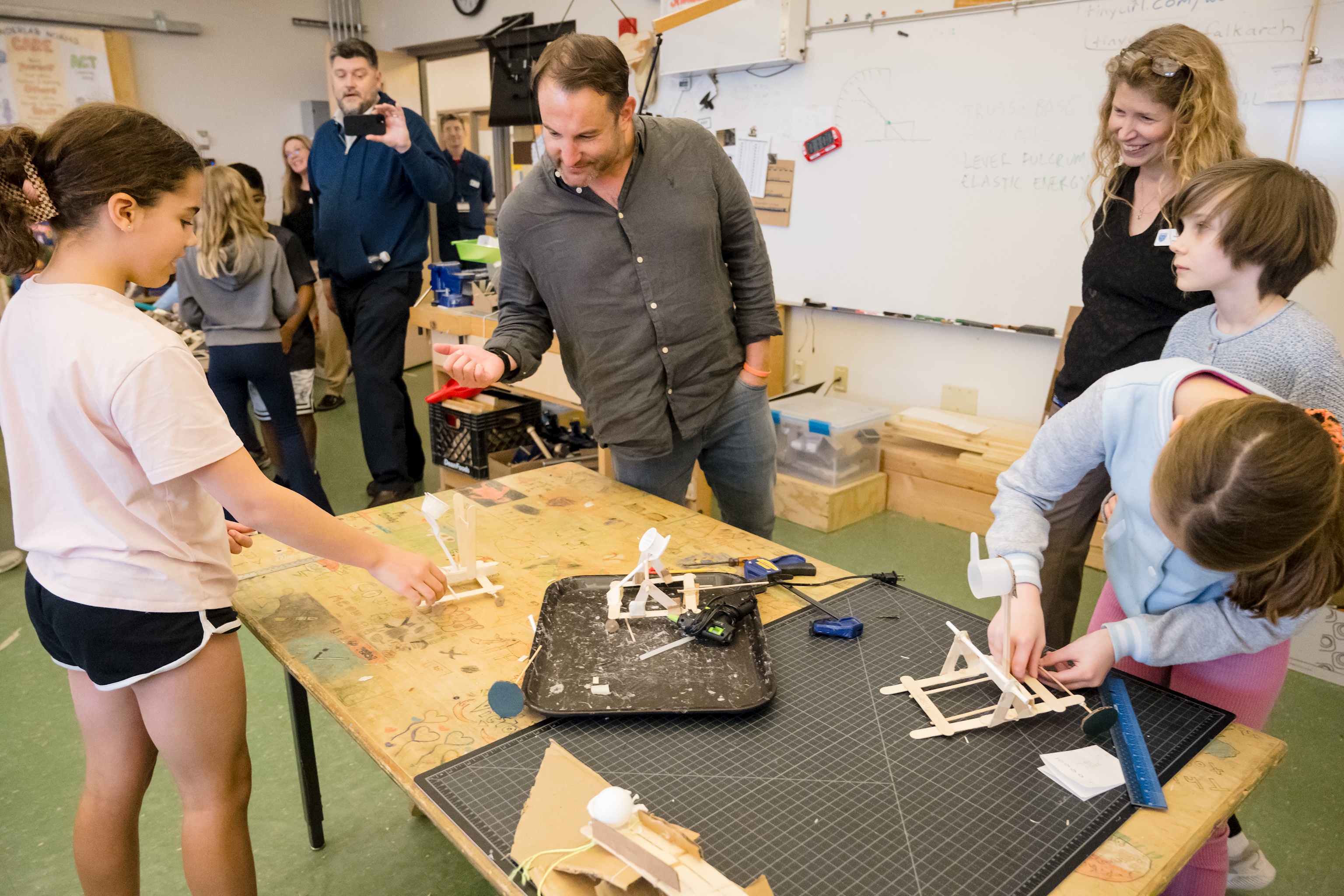
Who was the nicest famous person you’ve met and who was the most interesting?
So many famous people I got to interview turned out to be really nice. Jennifer Lawrence, Will Smith, Kendrick Lamar, Dolly Parton. They were all so down to earth.
I love you asking who was the most interesting because I really believe that celebrities are often not the most interesting people. And I’ve made it a big part of my mission as a journalist to elevate the voices of people who are not necessarily celebrities. One of the most interesting people I ever interviewed was this woman who lives in New Orleans, Ethel Williams. Her home was destroyed in Hurricane Katrina, and we would have long conversations about her relationship with politics and her belief in our government to support people in times of need. And no offense to all those people in Hollywood, but she was more interesting to talk to.
What’s your view on the current state of the news media?
I’m really worried. And not to put pressure on all of you but I think the future of the media depends on all of you. I think it depends on where you land in terms of prioritizing the truth, what you want in terms of news, how you want to consume news, and then how the industry responds to the desires of your generation. That relationship is going to be really important.
Because I think that the media right now is living in a place where we’ve lost so much trust, and for good reason. When I grew up wanting to be a journalist, that anchor desk on television was to me this very sacred thing. Anyone sitting behind that desk was telling the truth, had an interest in being curious, telling stories, delivering the news, and listening to different perspectives. And I think that anchor desk isn’t sacred anymore. If you’re consuming news or seeing someone on television, reading the news on social media, what is truth, what does news even mean anymore?
How do you think a journalist’s preferences affect how they do their work?
I went through a lot of my career early on thinking I could just set aside my views and just be objective, objective, objective. I think I’ve learned it’s a much more complicated world. It can be easy as a journalist to say, “I’m not bringing my own biases in because I’m hearing different perspectives from all sides, so I’m being fair.” That’s great, and that’s true to an extent. But there are these hidden biases that journalists don’t always see, and they fall into these traps. Like the stories they choose to tell, the voices they choose to listen to. Bias can be something that can just live in places you least expect it and I think that’s the most important thing that journalists have to keep in mind.
What advice do you have for someone thinking about becoming a journalist?
If you do it, just constantly be curious. Never assume that you know the story before you go into it. Never land in a place assigned to tell a story and go in with some assumption. Just constantly test your assumptions and listen. Listen and be curious, listen and be curious. That sounds like the easiest advice in the world but it’s actually the hardest. You can be focused on so many other things you forget to do the most important thing, which is to listen.
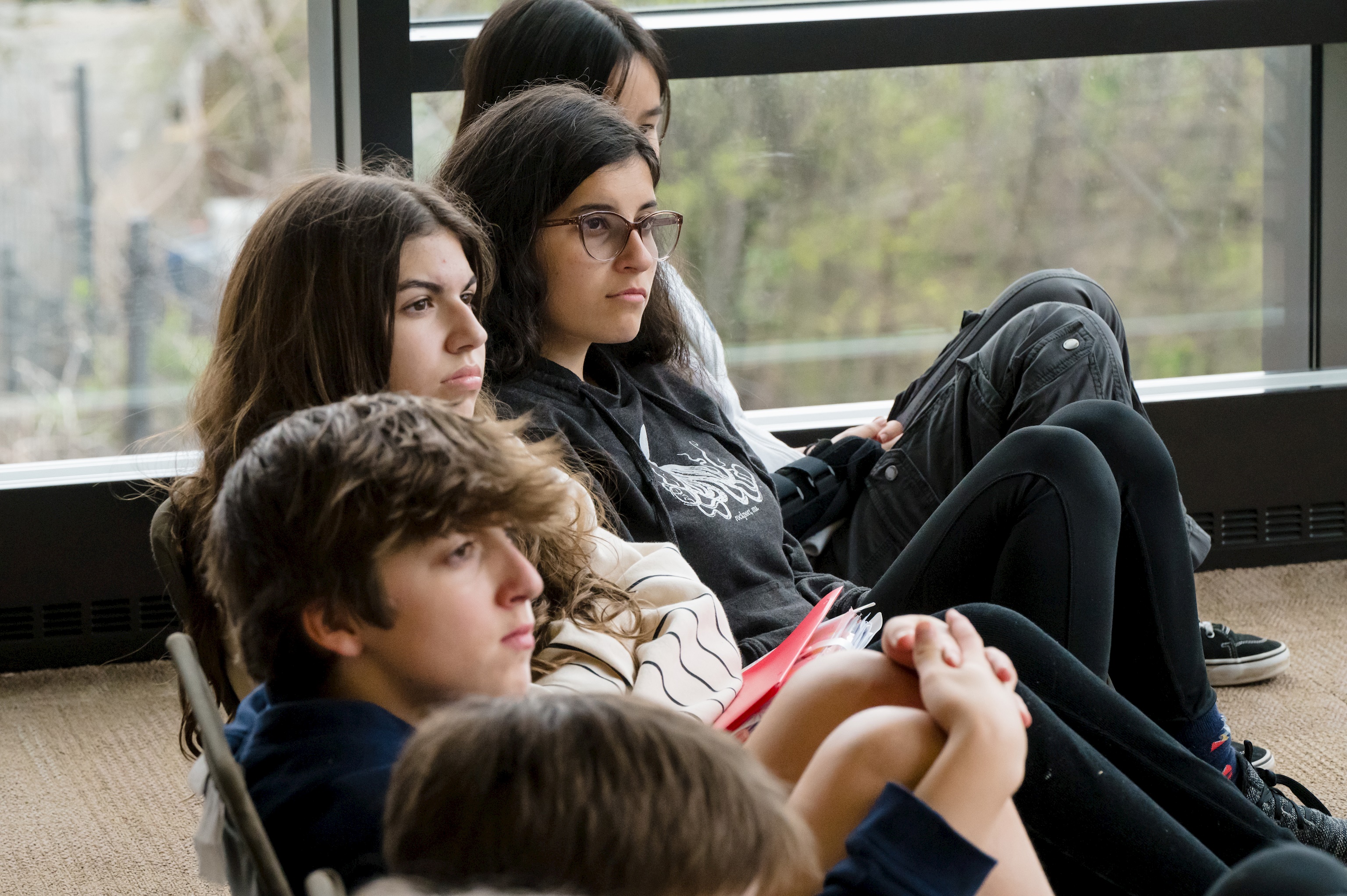
Do you think your time at Falk impacted your career as a journalist?
Yeah. I think the constant wonder is something that I don’t think I knew I was gaining when I was here. But it is so important in my life and career. Not just in journalism but my wife and I, we are both so curious whether we are meeting someone in her village of 2,300 people in Northwest Ohio or if we’re in the former soviet republic of Georgia. We’re just constantly curious and eager to build relationships and have a sense of wonder about the world. And I think my brain was just wired that way because of my time here. I truly believe that.
What was Falk like when you were here?
It’s the same and different. Some of these new facilities are incredible. The idea that you can hang out outside and overlook this beautiful campus, it’s pretty amazing. Some of these spaces are exactly the same. I saw one of my classrooms, with a teacher who I’ve been talking about, Dr. Martin. He was my teacher when I was here, which was in the 1980s—so just like a year or two ago. [laughter] And stepping into that classroom, it all came back.
I think the thing that stays the same is there’s just an energy in these walls that I feel right now, sitting here with all of you. There is something really, really special about this place that I don’t know if I fully appreciated when I was sitting where you are right now. But I appreciated it as time went on.
When I was first a reporter for the Baltimore Sun, I covered education, so I covered the school system in Carroll County, Maryland, and I was in classrooms a lot. And to me something was missing because the magic of this place wasn’t there. And I think it really is just this energy and this commitment to making everything that happens within these walls really meaningful. It’s like everyone wakes up here thinking about how you all can learn better, how the people teaching you can learn better, what’s going to make this more meaningful.
And as I’ve gotten older and noticed my constant state of curiosity and wonder, I think it’s rooted a lot in Falk and that’s something that hasn’t changed at all.
